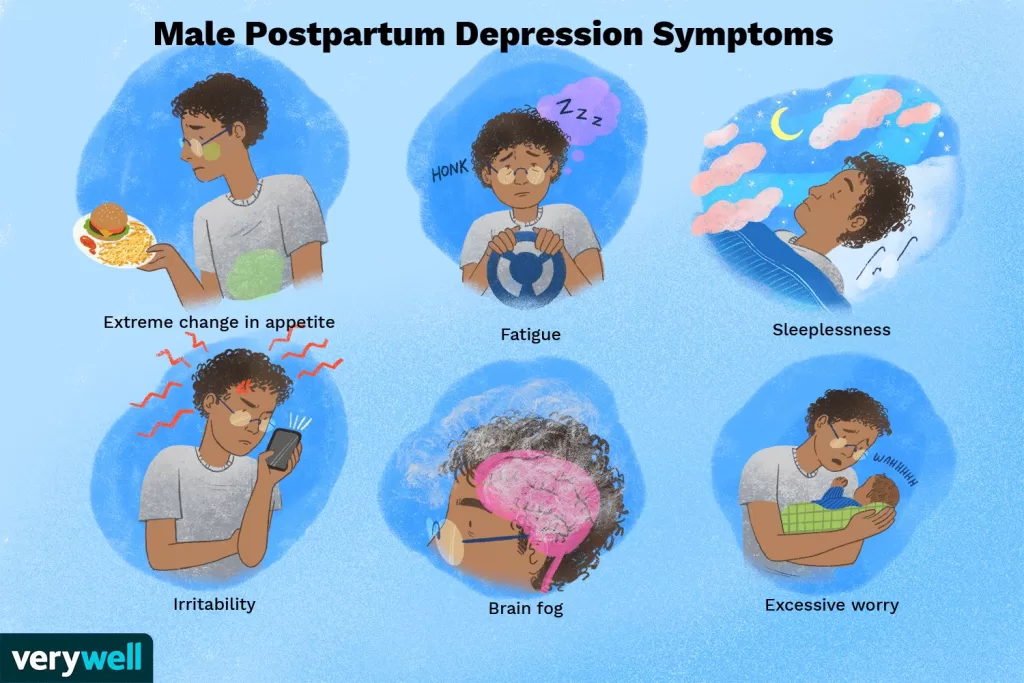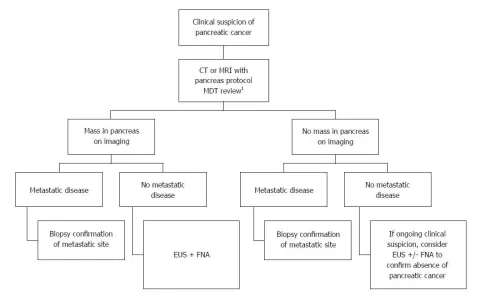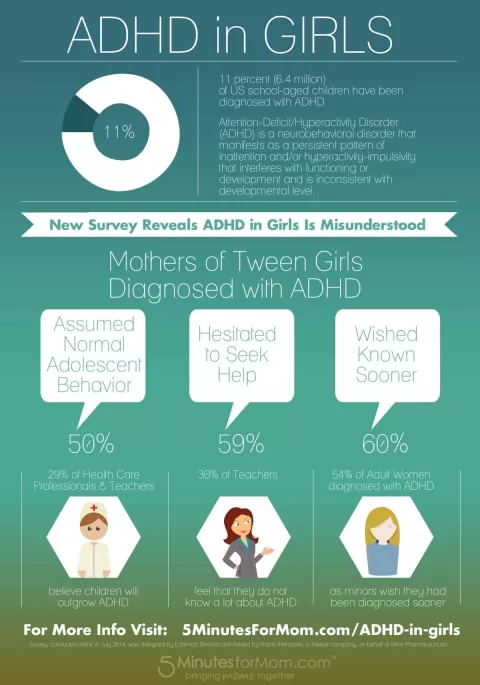Postpartum depression in men is an often-overlooked issue that deserves significant attention. While it’s widely recognized that new mothers experience mental health challenges following childbirth, studies reveal that new fathers can also face similar struggles. This type of depression is characterized by intense feelings of sadness, anxiety, and fatigue, which can severely impact men’s mental health. Recent research suggests that approximately 10% of new fathers experience postpartum depression, thus highlighting the need for awareness and recognition. Understanding the symptoms of postpartum depression is crucial, as it can help break the stigmas surrounding men’s mental health and support their well-being during this critical period.
Men’s mental health, particularly concerning new fatherhood, is frequently overlooked, leading to what is known as new fathers depression. This condition can manifest in various ways, such as postpartum anxiety disorder, which encompasses feelings of worry or dread that can arise after becoming a parent. Recognizing postpartum depression in men is essential, especially given that signs like increased irritability, isolation, and risky behaviors can be mistaken for typical stress. Acknowledging these issues can play a vital role in encouraging men to seek help and engage in discussions about their emotional and psychological well-being. By fostering conversations around the symptoms of postpartum depression, we can create a more supportive environment for new dads.
Understanding Postpartum Depression in Men
Postpartum depression in men is often overlooked, as societal norms have typically directed the focus towards new mothers. However, recent studies indicate that new fathers are not immune to this mental health condition. It’s crucial to understand that the emotional struggles facing dads can stem from the dramatic life changes brought by having a baby. Just as mothers may experience intense emotions during this period, fathers can also face overwhelming feelings of sadness and anxiety that merit attention and care.
Research shows that about 10% of new fathers experience postpartum depression, which can lead to significant distress for both them and their families. The symptoms can manifest in various forms, such as irritability, withdrawal from social activities, and a sense of inadequacy. As mental health awareness increases, recognizing postpartum depression in men becomes critical, allowing for better support systems for new fathers who might feel they need to bury their emotions.
Recognizing Symptoms of Postpartum Depression
Recognizing postpartum depression in men is key to improving men’s mental health during the challenging transition into fatherhood. The signs often overlap with the typical fatigue and stress that accompany new parenthood, making it tricky to pinpoint. Symptoms may include increased irritability or anger, feelings of overwhelm, and withdrawal from previously enjoyed activities. New dad depression does not just affect how fathers feel; it can also impact their relationships with partners and children.
Furthermore, symptoms of postpartum depression can escalate if not addressed. It’s important for partners and support networks to be vigilant. If a father displays irritability or engages in risky behaviors, these may be flags indicating deeper issues at play, potentially signaling a need for professional help. Open conversations about mental health, including feelings of anxiety and exhaustion, are vital for the well-being of both parents in a new family dynamic.
Factors Contributing to Postpartum Depression in Fathers
There are several physiological and environmental factors that contribute to postpartum depression in men. Though males do not undergo the same hormonal changes as women during pregnancy, hormonal shifts do occur; for instance, testosterone levels can decrease following a partner’s pregnancy. This decline, combined with the pressures of new parenting responsibilities, can significantly affect a father’s mental health.
Moreover, environmental factors such as sleep deprivation and changes in family dynamics contribute to mental health challenges. Sleepless nights, worries about financial responsibilities, and anxiety over meeting parenting expectations all put additional strain on new fathers. Addressing these concerns openly with partners can help foster an environment of support and understanding, easing the transition into fatherhood.
The Importance of Mental Health Support for New Fathers
Supporting men’s mental health and acknowledging postpartum depression within the context of fatherhood is crucial. Families must recognize that the challenges new fathers face are valid, and seeking help isn’t a sign of weakness. Instead, it is a proactive step towards ensuring the well-being of not just the father, but the entire family. Engaging in support groups or therapy can provide fathers with coping strategies and reassurance that they are not alone in their struggles.
Additionally, initiatives that promote open discussions about postpartum anxiety disorder and depression among fathers can lead to greater awareness and education surrounding men’s mental health. Increasing these conversations can help dismantle stigmas and encourage fathers to express their feelings and seek the assistance they need, improving outcomes for themselves and their families.
Long-Term Effects of Postpartum Depression on the Family
The long-term effects of postpartum depression in men can ripple through families, influencing not only the father but also the mother and child. Fathers struggling with depression may find it difficult to connect with their newborns, potentially hindering the bonding process. This detachment can impact the child’s emotional development and their ability to form healthy relationships as they grow.
Moreover, children may sense the emotional tension in their home environment. A father’s untreated postpartum symptoms can lead to an unstable atmosphere, affecting the child’s mental health and family dynamics. Hence, recognizing and addressing postpartum depression in men is essential not only for their recovery but also for nurturing a supportive and loving family environment.
Seeking Help: Where to Find Support for New Fathers
For new fathers experiencing postpartum depression, seeking help is essential. Many resources are available, from counseling services to support groups specifically for fathers. It’s important for men to recognize that reaching out for help is a vital step towards recovery and enhances overall family well-being. Communities are increasingly recognizing the need for men’s mental health initiatives, offering tailored programs to assist fathers in navigating their emotions during this tumultuous time.
Furthermore, healthcare providers can play a crucial role in identifying and supporting fathers dealing with postpartum depression. Regular check-ins during pediatric appointments can help ensure that fathers’ mental health is assessed alongside their child’s development. By creating a culture where both parents are supported in their emotional wellness, we can help diminish the isolation that many new fathers feel and promote healthier family dynamics.
Breaking Down Stigmas Around Men’s Mental Health
The stigmas surrounding men’s mental health can create barriers that prevent fathers from seeking help. Societal expectations often dictate that men must be stoic and strong, discouraging open discussions about vulnerability and emotional struggles. Breaking down these stigmas is vital for recognizing postpartum depression in men and encouraging them to share their experiences without fear of judgment.
Efforts to normalize conversations about men’s mental health, especially during the transition to fatherhood, can pave the way for meaningful support. When fathers speak openly about their feelings of sadness or anxiety linked to becoming a parent, it fosters a sense of community and understanding. This cultural shift can lead to more fathers seeking help and ultimately improving the mental well-being of countless families.
The Role of Partners in Supporting New Fathers
Partners play a critical role in supporting new fathers through their postpartum journeys. Creating an open and supportive dialogue is essential for recognizing when a partner might be struggling with postpartum depression. Encouraging fathers to express their feelings and sharing in the new parenting experience can alleviate some of the emotional burdens. A strong support system helps fathers feel less isolated and more capable of managing their mental health.
Moreover, involving fathers in baby care and nurturing tasks can enhance their bond with the child, mitigating feelings of inadequacy and anxiety. When partners collaborate in parenting duties and share the emotional labor, it can significantly ease the transition and contribute positively to the family’s mental health, ultimately building a stronger family unit.
The Impact of Postpartum Depression on Child Development
Postpartum depression in fathers can have profound effects on child development. Evidence suggests that emotional availability in the early stages of life is crucial for children’s developmental outcomes. A father who is struggling with depression may have difficulty being responsive to their child’s needs, affecting attachment and emotional security in the child.
Furthermore, children may mirror their parents’ emotional states; therefore, a father’s mental health challenges can create a cycle of emotional distress within the family. Ensuring that fathers receive appropriate care and support not only nurtures their well-being but also fosters a more stable and enriching environment for the child’s growth and development.
Frequently Asked Questions
What is postpartum depression in men?
Postpartum depression in men refers to a mental health condition that can affect new fathers following the birth of their child. It is characterized by feelings of sadness, anxiety, irritability, and exhaustion, which can arise at any point in the first year after childbirth.
What are the symptoms of postpartum depression in men?
Symptoms of postpartum depression in men can vary, but common signs include increased irritability, feelings of isolation, changes in sleeping patterns, and risky behaviors such as substance abuse or gambling. These symptoms can be confused with other issues, making recognition challenging.
How common is postpartum depression in men?
Approximately 10% of new fathers experience postpartum depression, indicating it is a significant issue that requires more awareness and understanding, especially in discussions about men’s mental health.
What causes postpartum depression in men?
Causes of postpartum depression in men include hormonal changes such as reduced testosterone levels, the stress of new parenting responsibilities, lack of sleep, and the emotional demands of caring for a newborn. Environmental factors can also play a role.
How can new fathers recognize postpartum depression?
Recognizing postpartum depression in men involves being aware of specific symptoms, such as persistent sadness, irritability, and feelings of being overwhelmed. It’s crucial for new fathers to monitor their mental state during the first few months after their child’s birth.
What treatments are available for postpartum depression in men?
Treatments for postpartum depression in men can involve therapy, medication, and support groups. Lifestyle changes, such as engaging in exercise and establishing a support system, are also beneficial in managing symptoms.
Can postpartum anxiety disorder affect new fathers?
Yes, postpartum anxiety disorder can also affect new fathers. It may manifest as excessive worry about parental responsibilities, general anxiety, or fears about the baby’s health and well-being, impacting overall mental health.
How can partners support new fathers experiencing postpartum depression?
Partners can support new fathers by providing emotional support, encouraging them to express their feelings, helping with baby care duties, and promoting open communication about mental health and well-being.
What is the impact of postpartum depression in men on children?
Postpartum depression in men can have lasting negative effects on children, affecting their emotional and behavioral development. It’s important for fathers to seek help to mitigate these potential impacts.
How can awareness be increased about postpartum depression in men?
Increasing awareness about postpartum depression in men involves educating healthcare providers, families, and communities about its signs and symptoms, and encouraging open discussions regarding men’s mental health after childbirth.
| Key Point | Details |
|---|---|
| Impact on Men | Postpartum depression affects new fathers as well, with about 10% experiencing it. |
| Symptoms | Irritability, isolation, risky behaviors, and feelings of sadness and anxiety. |
| Causes | Physiological factors like decreased testosterone and environmental stressors, including sleep deprivation and parenting worries. |
| Timing | Symptoms can appear anytime, but are most common in the first 3 to 6 months after birth. |
| Impact on Family | Postpartum depression in men can negatively affect bonding and have lasting effects on children. |
Summary
Postpartum depression in men is a significant issue that requires attention and awareness. While many associate postpartum depression with women, it is crucial to recognize that men can also suffer from this condition. Symptoms such as irritability and isolation can affect new fathers immensely, and understanding the causes—including hormonal changes and environmental stress—can help in addressing this mental health concern. Raising awareness about postpartum depression in men is vital for the wellbeing of both parents and their children.
The content provided on this blog (e.g., symptom descriptions, health tips, or general advice) is for informational purposes only and is not a substitute for professional medical advice, diagnosis, or treatment. Always seek the guidance of your physician or other qualified healthcare provider with any questions you may have regarding a medical condition. Never disregard professional medical advice or delay seeking it because of something you have read on this website. If you believe you may have a medical emergency, call your doctor or emergency services immediately. Reliance on any information provided by this blog is solely at your own risk.








